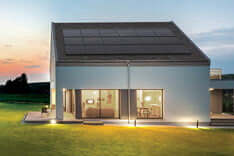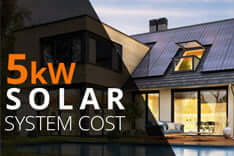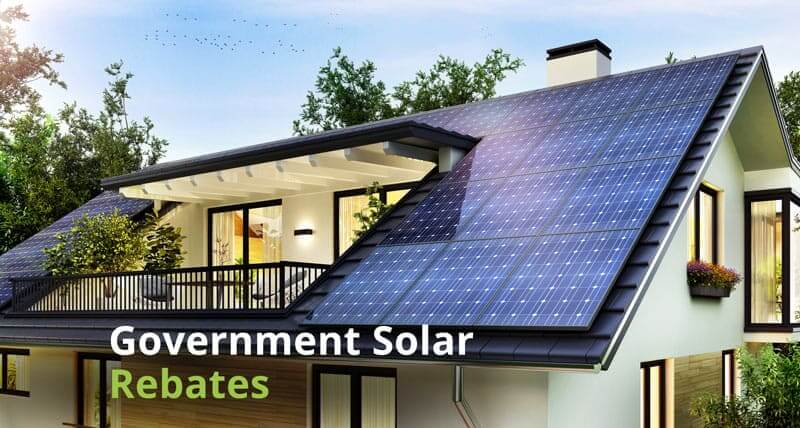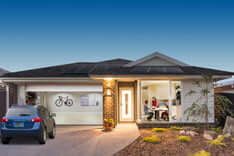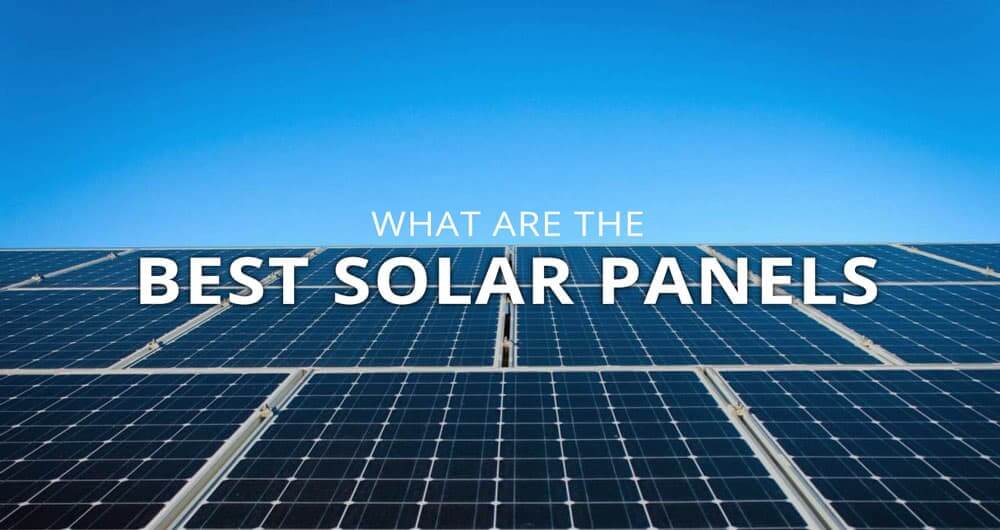Home Solar Advantages And Disadvantages
Pros and Cons of Solar Energy
Solar energy has been around for a decent span of time, and recognising its advantages isn’t tough work. Yet, there might be a few additional benefits that weren’t immediately obvious from the get-go.
Also, there are a few disadvantages you might need to know about before installing a system on your roof.
Table of Contents
ToggleWhat Are the Advantages and Disadvantages?
| Advantages | Disadvantages |
|---|---|
| Renewable/ Sustainable | Initial cost |
| Near Zero Maintenance | Weather dependent |
| Quiet | Expensive storage (Batteries) |
| Government incentives | Lots of roof space required |
| Available to most | Roof orientation |
| Employment creation |
Advantages Of Solar Power
ROI in 3 - 4 years
Solar energy is cheap to set up with government incentives and interest-free loans, and has a great ROI.
When you install solar panel systems in your home, it may take up to five years to recoup based on the savings you make on your electricity bill. After five years, you will enjoy free solar electricity for about 20 – 25 years or longer before you need to replace your panels.
Little Maintenance Required
Once you install solar panels, you may never have to contact your solar installer again. Solar panels do not need regular maintenance. Thus they save you money.
Before you install your panels, make sure that your roof is structurally sound. Consult your solar installer for the best paint color to use on your roof. A structurally sound roof holds the solar panels firmly on the roof and will also not need repair.
Government Incentives
In Australia, the government provides incentives in the form of rebates to encourage uptake of solar by its citizens. New solar customers get large discounts or rebates on the price of purchase and installation of solar panels in their homes.
On average homeowners are saving 38% off the initial cost of solar.
Some state governments also offer rebates on solar battery systems, interest-free loans for solar system purchases, and free solar panels for low-income residents.
The incentives are only available for residential homes and small businesses for solar panels of up to 100kW capacity.
No More Blackouts
When installing solar panels with a backup battery, you will stop relying on grid power. Thus, you will not suffer low voltage or blackouts in times of high demand on the grid.
With solar power in your home, you can be energy-independent. This means you don’t need power from the grid to run your home.
Renewable Energy
Solar is clean and renewable. Since it comes from the sun, you can generate solar energy every day without harming the environment in any way.
All you need is to install a solar panel on your roof. Solar panels are also built with eco-friendly materials. The solar panels will capture sunshine and convert it into electrical energy that you can use in your home.
Your solar panels will do this as long as the sun is shining. You can install a battery storage system to store excess power to use on cold days and at night.
Diverse Uses
Solar power can be put to many uses. It can generate power for your home or for a large connected grid. At home, you can use it to run the home or heat. To run your home, you will purchase solar photovoltaic panels, while for water heating, you will buy solar heaters and solar lamps for external use.
To make the environment even better, solar can be integrated into building materials.
Silent
Solar power is produced silently unlike other sources of power. Windmills and fracking machines for oil exploration to produce power are very noisy.
Once solar panels are installed on the roof, they capture sunshine and transform it into electricity without any noise.
Can Be Installed Anywhere
Solar panels can be installed anywhere. Solar panels for large solar power projects, for example, to produce grid power, can be installed anywhere. All that is required is a space with direct access to sunlight.
If your home is shaded, so that your roof doesn’t receive sufficient sunlight, the panels can be installed on the ground away from trees and easily connected to your home.
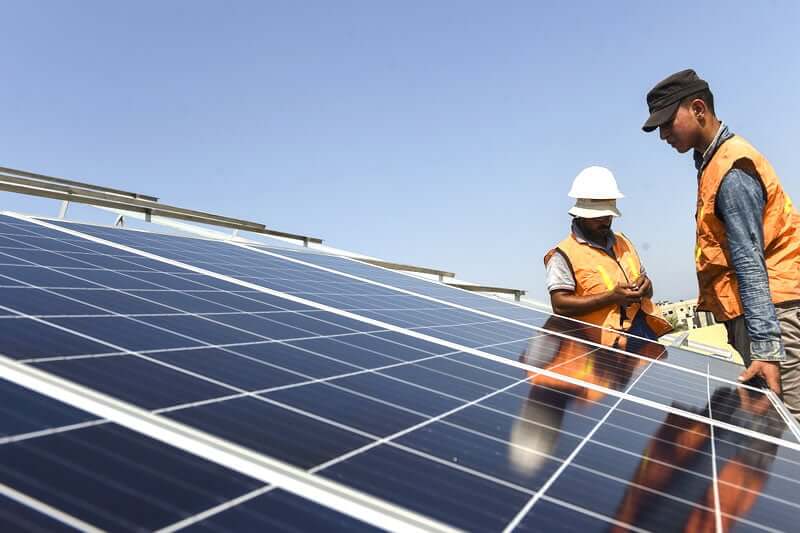
Employment Creation
As demand for solar in a country rises, it creates an industry. Manufacturers, retailers, and installers of solar panels become an economic force and create employment for others who would love to join them.
Technology Advancements
Over the last decade, solar power production technology has developed. Solar panels now are more effective than they were in that period. Additionally, the technology keeps on developing to make solar panels more efficient.
Previously, where you may have needed 50 solar panels for a certain capacity, you may find you now only need 25-30 panels. Previously, if one of the solar panels on your roof got shaded, it would affect the production capacity of your whole system. Now, with micro-inverter technology, only the shaded panel will produce at low capacity.
As solar panel production technology advances, solar panels will become more efficient and increase how much electrical power they produce.
Disadvantages Of Solar
Upfront Cost
Solar power systems are expensive to purchase. In Australia, a 6.6kW solar PV system costs around $7,731 after the government rebate.
However, compared to about a decade ago, the cost of solar panels has reduced significantly. The prices are still high for many households and the rebate discount and other government incentives encourage more households to take up solar.
With the rebate being gradually phased out until 2030, more households should take advantage of it to acquire a cheaper way to power their homes.
Weather Dependent
To enjoy the maximum benefits of solar power, you need to live in a place that enjoys many hours of sunshine. Many hours of sunshine ensures that your solar panels produce as effectively as they should. If you live in a place with little sunshine, you can still install solar panels but, they will not be as efficient.
During the cold season and on cloudy days, you will not have as much power produced by your solar panels. To enjoy solar power on cold and cloudy days you need to invest in a solar power storage system.
Expensive Storage Systems
If you want to be energy independent with solar power, you will need to purchase a solar battery storage system. Compared to solar panel systems, the storage systems are more expensive.
The solar battery storage system consists of one or more batteries that store excess power produced by the solar panels.
The stored energy can then be used in winter, at night, and on cloudy days. During these days, there is little sunlight, thus the solar panels do not produce as much electricity as on sunny days.
To be energy independent with solar power, you will have to invest more to acquire a full solar power system.
Requires Lots Of Space
To get enough power from your solar panels, you need a large unshaded roof space. For a 6.6kW system, you may need 25-35 solar panels depending on their capacity. You will need a large roof with enough space to hold these installed solar panels. Where the panels don’t fit on the roof, you will need unshaded space in your yard to install.
Depending on the size of the solar system you buy, you can fill your roof with solar panels. If your roof was part of the appeal of your home, you will have to make do with a cluttered roof.
Additionally, solar storage batteries are also large. Most times you will need more than one battery to store sufficient power. These batteries will take up a lot of space in your house that can be used differently.
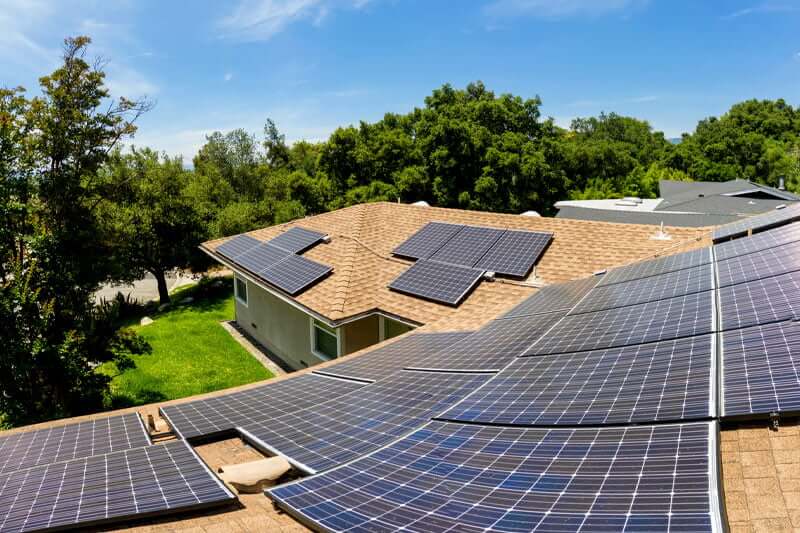
May Require Permits
Depending on where you live, you may require a permit to install solar panels on your roof. Check with your local government offices if you need a permit to install solar panels.
If you do, this will increase the cost of your solar power installation project. Further, depending on the speed at which your local government offices work, this may cause a delay in the installation.
When you hire an accredited installer to install the solar system, they can advise on whether you will need a permit or not.
Roof Orientation
Depending on the orientation of your roof, your roof may or may not be suitable to hold solar panels. If your roof is west facing and most of it is shaded, it is not suitable to hold solar panels. It doesn’t get enough sunlight to produce a significant amount of solar power. You will have to install your solar panels on the ground.
If your roof is south-facing and is not shaded, you can install solar panels on it and produce more than enough electric power for your household.
Before installing solar panels, have your chosen installer inspect the suitability of your roof. They will check that you have enough roof space for the panels you require, that you have the right roofing materials and roof orientation.
Conclusion
Whether you are a household, small or large business, there are many benefits of installing and using solar power. Most important, is that you will save money on the ever-rising cost of electricity. You can also become energy independent with little reliance on the grid.
There are also a few disadvantages to the use of solar power. You can easily overcome these disadvantages by hiring an accredited installer for your solar power project.
As you can see from the list of advantages and disadvantages, it is worth installing solar power anywhere you use electricity. It is natural and it can be stored. It also helps you enjoy free electricity after you have recouped your investment in 5-7 years.
Table of Contents
Toggle
